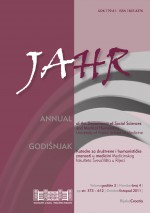From reverence for life to bioethics: Albert Schweitzer, a bioethics precursor
Abstract
Precursor only exists, as a precursor, when related to recognized and posterior author. In terms
of thoughts, a precursor didn’t precede, he coexist. One marvelous example of coexistence is
Albert Schweitzer and Fritz Jahr. Jahr is not a Potter precursor; he coined Bioethics as a word.
Jahr is the founder. He made a rupture in the history of Ethics, when he proposed the Bioethics Imperative. I will present some highlights related to Bioethics, in the vast and diverse
intellectual production of Albert Schweitzer. Th e Ethics of the Reverence for Life, fi rst coined
in a sermon in 1919, is based in Virtue Ethics. Reverence for Life is another kind of love, as
a virtue. Reverence for Life is beyond self-sacrifi ce, self-fulfi llment and self-improvement, is
a creative force related to civilization. In 1923, in a magnifi cent book is – Civilization and
Ethics – Albert Schweitzer described his proposal in details. In an article, published in 1936
he consolidated his thoughts about humanity, civilization, ethics, life and living. We must
recognize the importance of Albert Schweitzer in the history of Bioethics.
Downloads
Published
Issue
Section
License
Authors who publish with this journal agree to the following terms:
- Authors retain copyright and grant the journal right of first publication with the work simultaneously licensed under a Creative Commons Attribution License that allows others to share the work with an acknowledgement of the work's authorship and initial publication in this journal.
- Authors are able to enter into separate, additional contractual arrangements for the non-exclusive distribution of the journal's published version of the work (e.g., post it to an institutional repository or publish it in a book), with an acknowledgement of its initial publication in this journal.
- Authors are permitted and encouraged to post their work online (e.g., in institutional repositories or on their website) prior to and during the submission process, as it can lead to productive exchanges, as well as earlier and greater citation of published work (See The Effect of Open Access).



